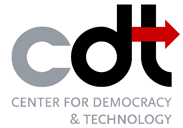 [Posted on the Center for Democracy and Technology blog by Jens-Henrik Jeppesen (CC-BY-NC)] Last week, CDT submitted its response to the European Commission’s consultation on copyright enforcement.
[Posted on the Center for Democracy and Technology blog by Jens-Henrik Jeppesen (CC-BY-NC)] Last week, CDT submitted its response to the European Commission’s consultation on copyright enforcement.
The Commission has previously held public consultations, conferences, and ‘stakeholder dialogues’ on this issue, and the present consultation was structured as a ‘technical survey’ to gather specific information on the efficiency of proceedings and accessibility of measures used for civil enforcement of intellectual property rights. Some groups have argued that the Commission’s effort is too focused on streamlining access to legal remedies and stronger enforcement measures, and have encouraged individuals and civil society groups to use the consultation to raise calls for broader copyright reform.
CDT’s response focused on the importance of balance and fair process in copyright enforcement, and will be published online by the Commission along with other respondents’ views in due course. In addition to our response to the Commission’s questionnaire, CDT submitted an appendix with additional views.
CDT has commented extensively on copyright enforcement issues, and we have consistently stressed the need for balance. Copyright enforcement systems must provide for adequate protection and deterrence against commercial scale infringement and counterfeiting. At the same time, enforcement must not harm innovation – even when it disrupts established business models – impinge on fundamental human rights such as free expression, or cause undue intrusion into citizens’ and consumers’ privacy.
We have explained and defended these principles in, for example, our 2012 comments to the European Commission on notice-and-action; our 2012 comments to the US IP Enforcement Coordinator; our 2011 congressional testimony regarding the predecessor legislation to SOPA and PIPA; our 2010 submission to the US Department of Commerce; and a paper presented at the ‘Challenges and Opportunities of Online Entertainment’ Conference in Barcelona in 2012.
In our response to the present consultation, we warn against the dangers of imposing obligations on intermediaries such as Internet Service Providers and Internet platforms to monitor, control, and intervene in citizens’ online activities. Such obligations would cause unacceptable limitations of the right to privacy and free expression, and can discourage investment in innovative services that facilitate the exercise of human rights online. The same risks apply to blocking of websites and online content. As a general principle, CDT argues that full and due process is essential in enforcement activities.
How to balance these policy considerations is subject of ongoing debate on both sides of the Atlantic, and has been tested in litigation involving online intermediaries in several countries (see, for example, CDT’s analysis of several CJEU and US cases).
Whether the European Commission will propose amendments to the current IP enforcement framework remains to be seen. The Commission could issue guidance to Member States in the form of a Communication or Recommendation, or it could propose changes to the Directive. But this is clearly a controversial area, as last year’s protests over ACTA showed, so any initiative the Commission may take will be subject of heated discussion. CDT will continue to contribute to this important ongoing debate.




